
A "rare event" at Chicago Lyric: Piotr Beczała in recital
InterviewThe components of the modern-day singing career, with all the associated commercial forces and media dictates, often conspire to produce an offspring that can only be described as paradoxical. A vocal recital — just one lone singer and a pianist performing ephemeral works of musical poetry — is the very definition of an intimate affair. To hold such an event in a 3,563-seat theater is a bit like trying to pillow-talk in…well, a 3,563-seat theater: there’s some cognitive dissonance with the notion. Rare are the artists who, through a combination of personality and intensity of communication, transcend the space and reach an audience as if on an individual basis. Renowned tenor Piotr Beczała and esteemed collaborative pianist Martin Katz succeeded brilliantly in squaring this circle in their recital on the main stage of the Lyric Opera of Chicago this past Sunday.
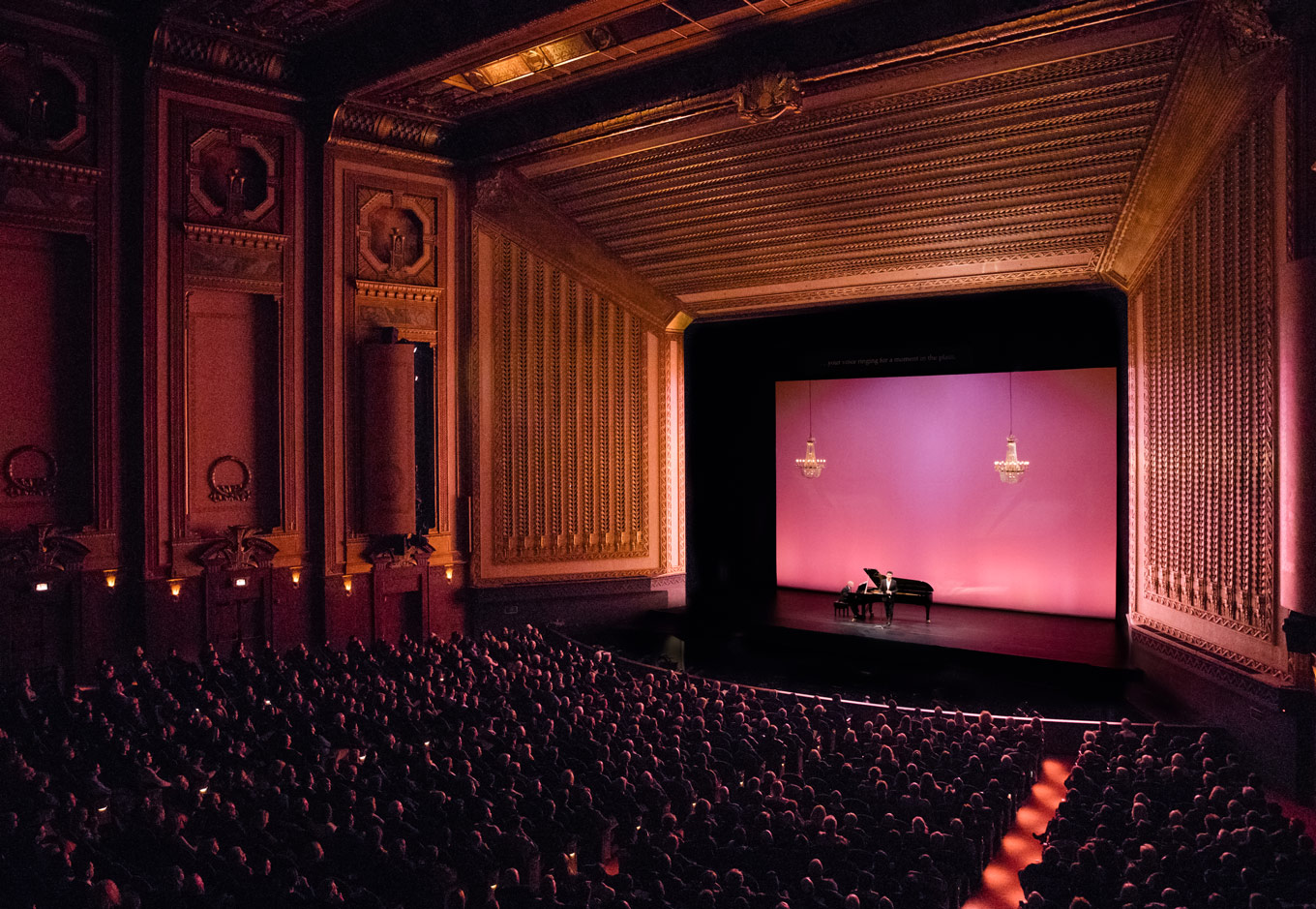
I had the pleasure and privilege of speaking with the Polish-born singer a few days prior to his arrival in Chicago for the performance. Careers, paradoxes, collaboration, and patriotism were some of the topics we touched on and his conversation proved just as thoughtful and direct as his musicianship. As fellow Poles, we chatted in Polish. I provide English translations of his responses below.
Among other things, Chicago boasts one of the largest and most intense Polish communities of any city in the world. Poles are fiercely proud of their cultural heroes, whether historical or current, so when a native son or daughter comes to town, Polonia (as the city’s Polish community is known) galvanizes in support of their own. And Polonia certainly showed up on Sunday for Mr. Beczała, filling the immense LOC auditorium nearly to capacity. Following his debut in 2009⁄10 as the title role in Faust, Mr. Beczała was most recently at LOC during the 2016⁄17 season as Edgardo in Lucia di Lammermoor. I ask him how he feels returning to Chicago, this time to sing a recital of art songs.
Mr. Beczała’s and Mr. Katz’s program that afternoon (which the duo repeats in Carnegie Hall on February 28) juxtaposed art songs by Italian and Polish composers from the turn of the 19th-century. The first half included sets by Stefano Donaudy, Ermanno Wolf-Ferrari, Ottorino Respighi, and Francesco Paolo Tosti. The second half consisted of little-known pieces by Karol Szymanowski, Mieczysław Karłowicz, and Stanisław Moniuszko.
Though these latter composers may be household names on Poland’s music scene, they are not regularly represented on international stages. Beczała’s repertoire encompasses an impressively wide range of roles and works from Mozart, Donizetti, and Verdi to Tchaikovsky, Lehar, Tauber, and now also Wagner. But each new project is pursued only after careful consideration and Polish repertoire figures prominently in his programming decisions.
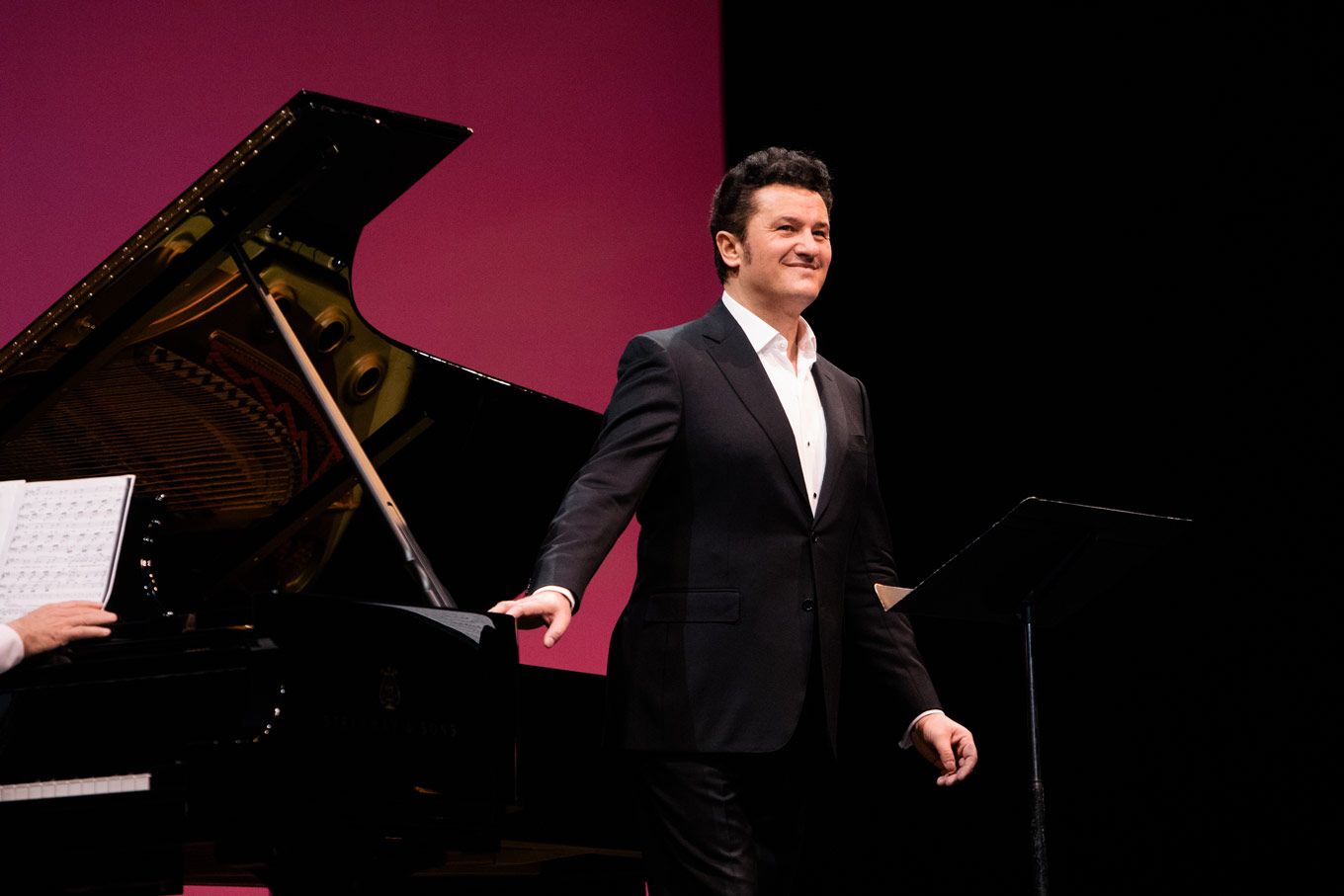
It’s not unfair to say that, for many people around the world, the category of “Polish music” begins and ends with the masterpieces of Fryderyk Chopin. This can be both a blessing and a curse for Polish composers as they are inevitably bisected into pre- and post-Chopin groups. Increasingly, major Polish artists, such as pianists Krystian Zimerman (for whom Lutosławski wrote his Piano Concerto and who has championed the music of Grażyna Bacewicz, Poland’s most important female composer), Piotr Anderszewski (who tours regularly with Szymanowski’s piano works), and singers such as Beczała, have passionately brought other Polish composers into a limelight of their own.
Szymanowski’s 6 Songs, Op. 2, which opened the second half Sunday’s recital, was without doubt the heaviest portion of the program. It is Szymanowski’s earliest published set of art songs and, though not as dense as some of his later music, has all the hallmarks of his style: this singular blend of wafting impressionistic harmonies and exotic Scriabin-esque melodic turns all wrapped in a blanket of existential despondency that is inherently sui generis. The texts to these songs, by the transgressive modernist poet Kazimierz Przerwa-Tetmajer, are bleak. “The world remains distant,” the first song in the set, captures the longing of a dejected lover with an outburst to a ff high-A. In “You have not died,” the lover muses on the fact that his beloved’s lips are cold, yet she is clearly alive. The cycle concludes with the song “Pilgrim,” the rumination of a drifter accepting life as it comes. It takes a laser-like focus to convey the nuances of this language even to a room of native-speakers. For all the beauty he offered the rest of the afternoon, it was in these songs that Beczała put his full artistry on display. I sat breathless through each heart-wrenching word.
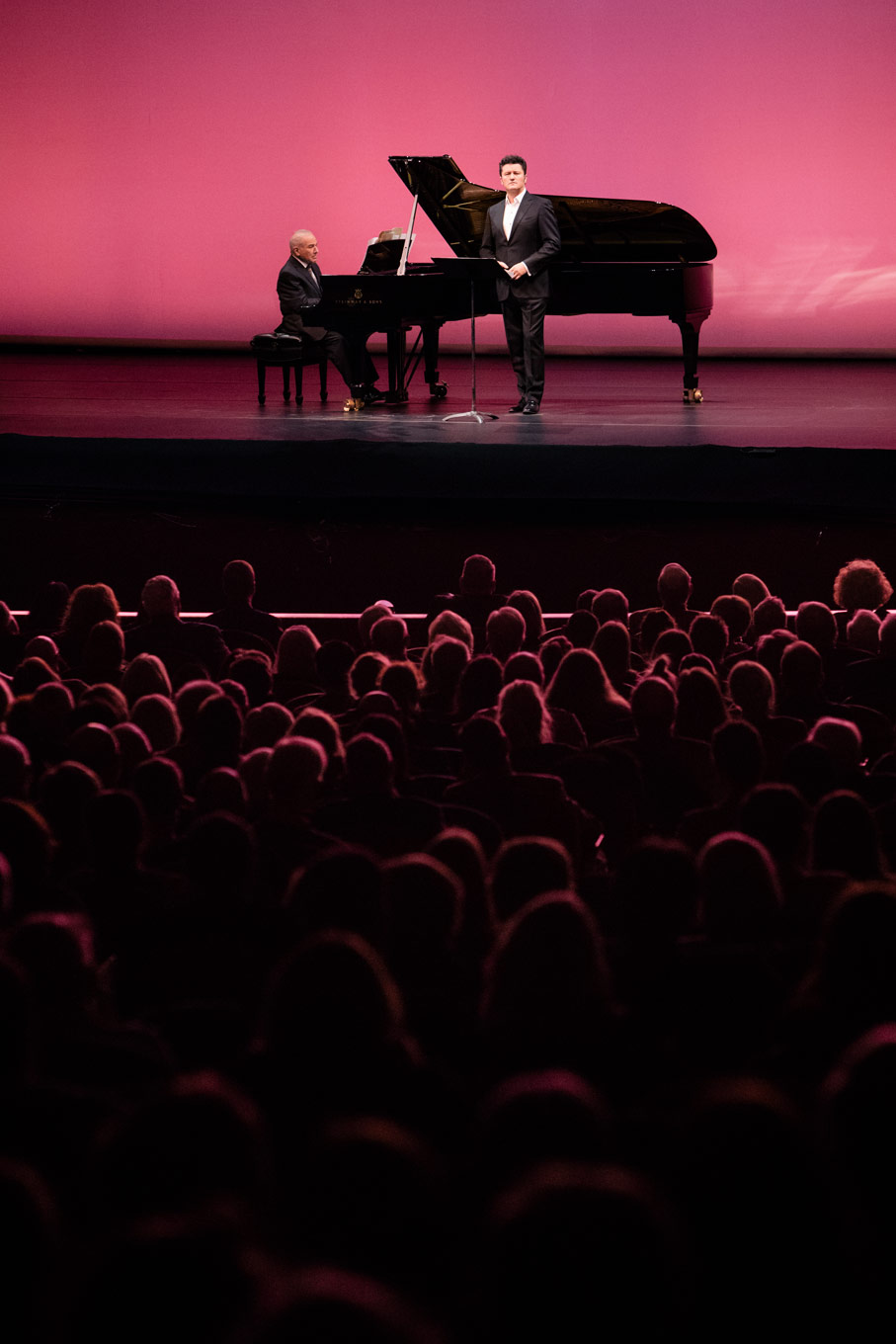
The Polish language is infamous for its grammatical and pronunciation challenges – this goes doubly for singing in the language. In his 1818 treatise On the Meter and Rhythm of the Polish Language, Józef Elsner (co-founder of Warsaw’s National Opera, Conservatory, and famed teacher of the young Chopin himself) makes the bold statement that “Polish is second only to Italian as regards its suitability to music and song.” Many musicians, then as now, would beg to differ.
The seven songs by Mieczysław Karłowicz were a refreshing follow-up to the demanding Szymanowski set. Here is a composer whose life was cut short at the tragically young age of 32, whose song output numbers only 22 pieces, yet who managed to highlight the lyrical—indeed, Italianate qualities of the Polish language more successfully than many others. The texts evoke the trees, rivers, and fields of the Polish countryside. Beczała captured the whimsy and charm of these settings with superb shadings and inflections. As in the Italian repertoire of the first half, here Beczała made it known why he is one of the most sought-after artists on today’s circuit. He is a tenor with a radiant top and a velvety middle register who employs his instrument with supreme intelligence and craft.
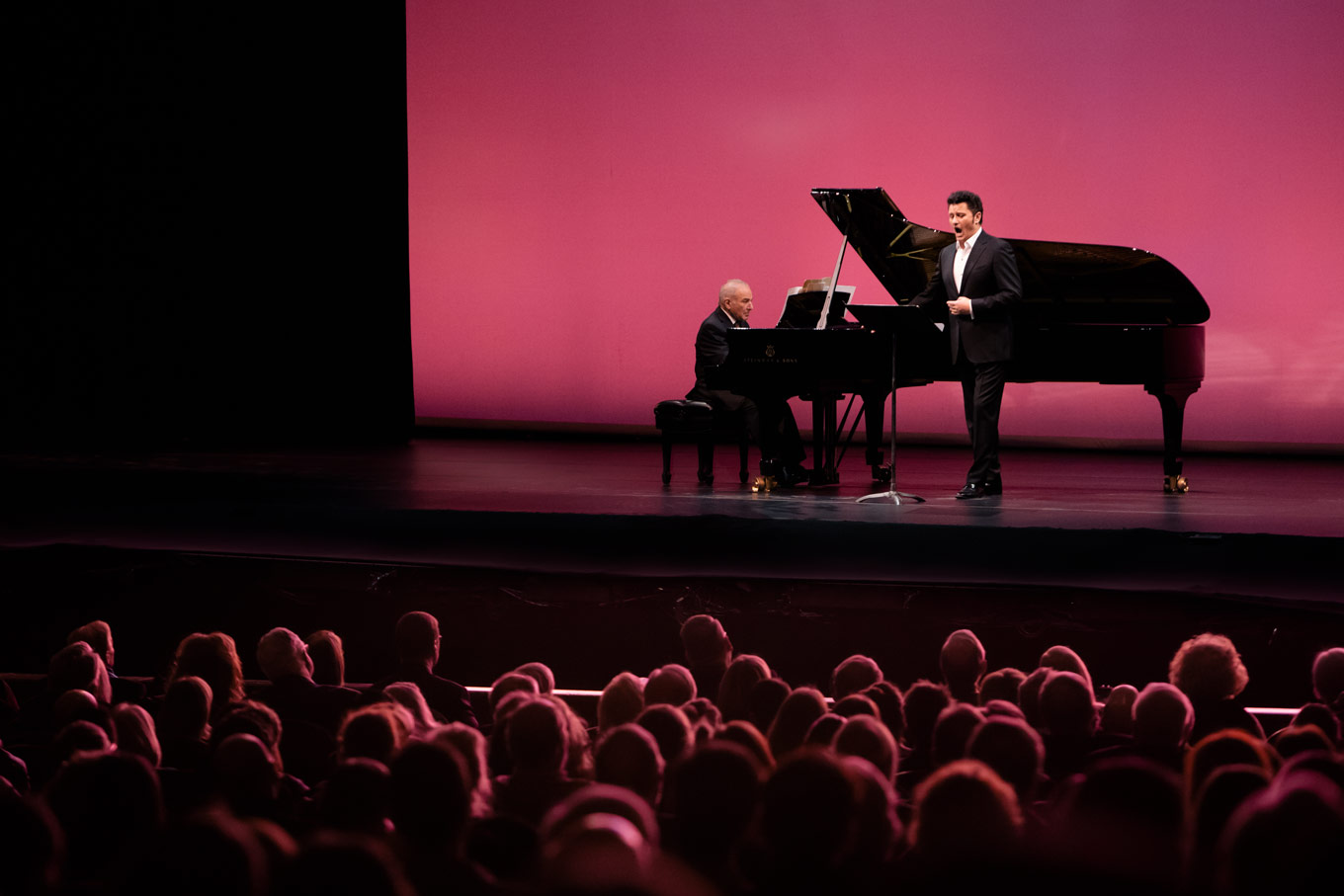
Complementing Beczała’s artistry was Martin Katz at the piano, an indisputable master musician in his own right and Beczała’s go-to collaborator in the U.S.
Watching — and hearing — Katz play is like witnessing a Zen-master tending his garden. His is an old-school and vanishing brand of pianism that eschews histrionics at the keyboard. There’s a quiet mastery in the way he caresses the keys; he conjures up seemingly limitless colors directly from the soul of the Steinway grand. The Respighi songs were especially dazzling in his hands. Listening to the piano writing in these pieces, one was reminded of Respighi’s talent for sonic special effects. Particularly in “Pioggia,” Katz seemed to conjure a delicate trickling rain.
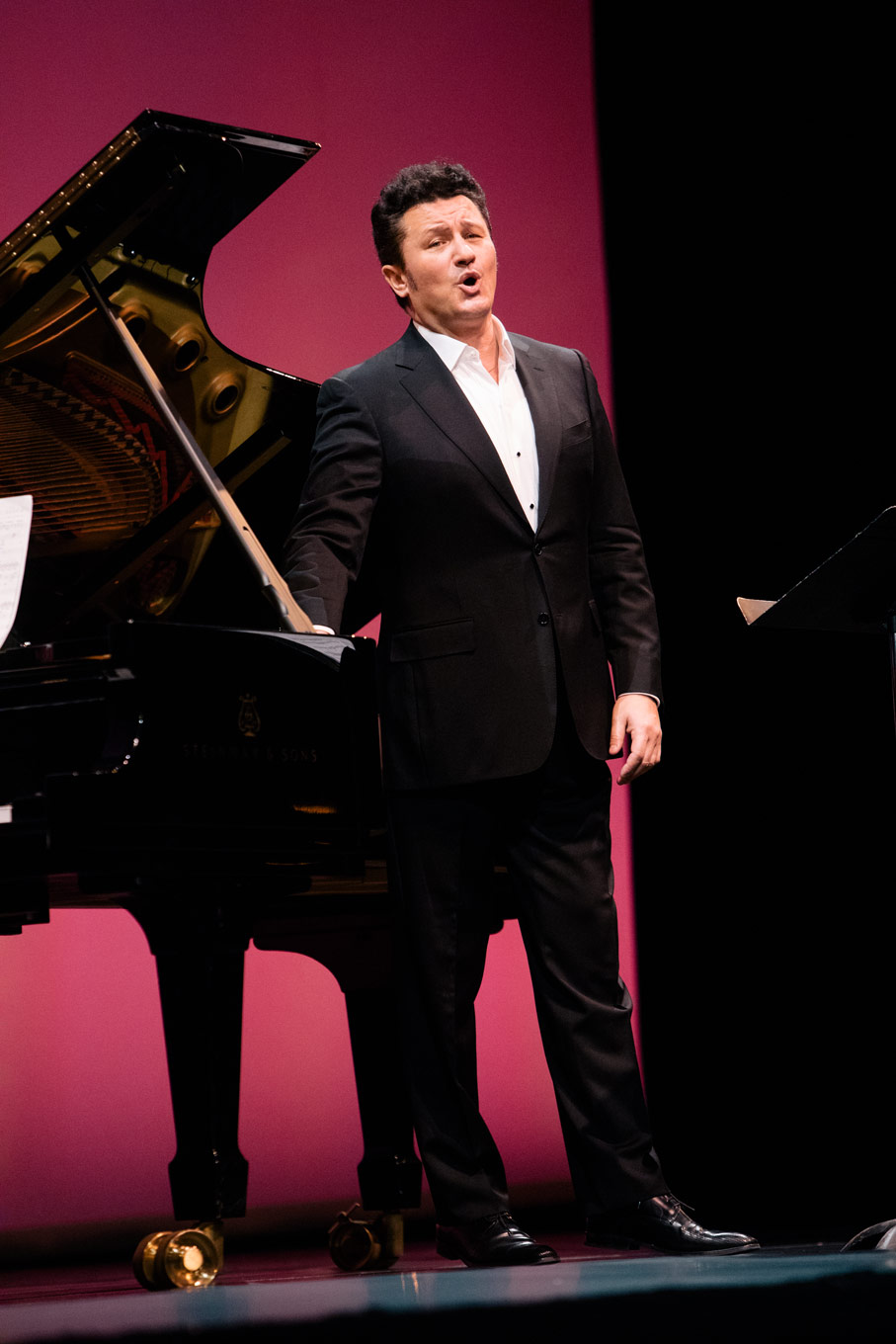
Considering his distinguished career to-date, I was curious what reflections Mr. Beczała had on the life and art of an opera singer today as compared to when he first began his journey some thirty years ago.
What advice does he have for today’s young aspiring singers?
I am grateful to LOC’s Director of Media Relations Magda Krance and Mr. Beczała’s management for facilitating this interview as well as to Mr. Beczała himself for his time and insights.


Comments